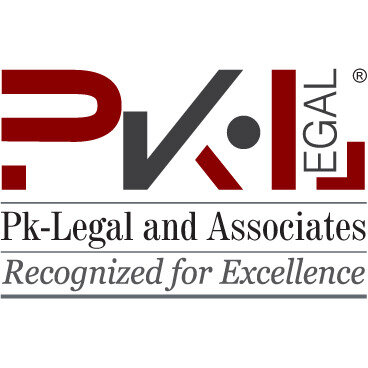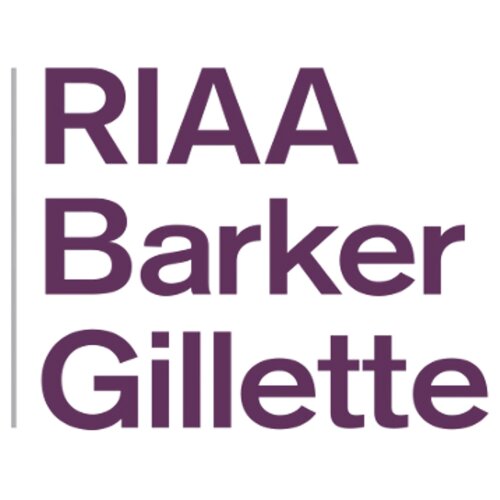Best Project Finance Lawyers in Islamabad
Share your needs with us, get contacted by law firms.
Free. Takes 2 min.
List of the best lawyers in Islamabad, Pakistan
About Project Finance Law in Islamabad, Pakistan
Project finance is a specialized area of law and finance focused on the funding of large-scale infrastructure and industrial projects. In Islamabad, project finance plays a crucial role in the development of sectors such as energy, transportation, telecommunications, and water resources. This method of financing is characterized by the reliance on the cash flow generated by the project to repay the invested funds, rather than the balance sheets of project sponsors. Project finance arrangements in Islamabad often involve public-private partnerships, international lenders, and multilayered risk allocation frameworks. Legal expertise is essential for structuring, negotiating, and documenting project finance deals to ensure compliance with local regulations and to protect the interests of all parties involved.
Why You May Need a Lawyer
Engaging a lawyer for project finance matters in Islamabad is important for several reasons. Common situations requiring legal assistance include:
- Structuring complex project finance transactions involving multiple parties, such as sponsors, lenders, and government agencies.
- Drafting and negotiating project agreements, such as concession agreements, power purchase agreements, EPC (Engineering, Procurement, and Construction) contracts, and offtake agreements.
- Advising on compliance with regulatory requirements from federal and provincial authorities covering sectors like energy, construction, and environment.
- Undertaking due diligence, risk assessment, and addressing issues related to land acquisition, taxation, and customs.
- Resolving disputes that may arise during the project lifecycle, such as contractual disagreements or regulatory challenges.
- Advising on project security arrangements, such as collateral, guarantees, and insurance matters.
- Assisting with cross-border financing and foreign investment, including compliance with the State Bank of Pakistan's regulations.
Local Laws Overview
Several key legal frameworks and regulations shape project finance in Islamabad:
- Companies Act, 2017 - Governs the formation and operation of project companies and special purpose vehicles.
- Foreign Exchange Regulation Act, 1947 - Regulates foreign currency transactions and overseas investments, under the supervision of the State Bank of Pakistan.
- Securities and Exchange Commission of Pakistan (SECP) Regulations - Includes rules for registration, reporting, and governance of corporate entities involved in project finance.
- Public Private Partnership Authority Act, 2017 - Provides the legal basis for PPPs, a common model for financing infrastructure projects in Islamabad.
- Sector Specific Laws - Each sector, such as energy or transport, has specialized regulatory bodies like the National Electric Power Regulatory Authority (NEPRA) and the National Highway Authority (NHA), setting standards and issuing permits and licenses.
- Environmental Laws - Projects must also comply with environmental regulations administered by the Pakistan Environmental Protection Agency (Pak-EPA).
A lawyer specializing in project finance can help parties understand and navigate these complex regulatory requirements and contractual obligations.
Frequently Asked Questions
What is project finance and how is it different from traditional financing?
Project finance involves raising funds for a specific project, with repayment supported only by the project's cash flows. Unlike traditional financing, lenders in project finance have limited or no recourse to the sponsors' assets outside the project.
What are common sectors using project finance in Islamabad?
Sectors such as energy (power plants), transport (roads and ports), telecommunications, water and sanitation, and public infrastructure often rely on project finance structures.
What is a Special Purpose Vehicle (SPV) in project finance?
An SPV is a legal entity created solely to carry out a project, limiting risk exposure for sponsors and lenders by isolating the project from the sponsors' other business activities.
How are risks managed in a project finance deal?
Risks are identified and allocated among parties through detailed contracts, insurance, guarantees, and government undertakings. Common risk types include construction, operational, market, regulatory, and political risks.
What approvals are needed for project finance in Islamabad?
Project approval depends on the sector, but typically includes government permits, environmental clearances, sector regulator licenses, and compliance with foreign investment rules if applicable.
How do public-private partnerships (PPPs) function in Pakistan?
PPPs are collaborative projects between government authorities and private entities, regulated under the Public Private Partnership Authority Act. PPPs set out clear frameworks for project sharing, risk allocation, and profit distribution.
What role do international lenders and investors play?
International banks, export credit agencies, and development finance institutions often provide funding or guarantees, especially for large-scale infrastructure projects. Their involvement may require compliance with international standards and reporting.
What are common legal documents used in project finance?
Key documents include loan agreements, security documents, shareholder agreements, EPC contracts, concession agreements, and offtake agreements, each spelling out the rights and obligations of parties.
Do local laws encourage foreign investment in project finance?
Yes, Pakistani law provides certain protections and incentives for foreign investors, though sector-specific limitations and regulatory approvals may apply. Legal guidance helps navigate these provisions.
How can legal disputes in project finance be resolved?
Disputes are commonly resolved through contractual dispute resolution clauses, such as arbitration or mediation, sometimes under international arbitration rules, or through Pakistani courts if specified.
Additional Resources
Several organizations and governmental bodies can assist with information and guidance on project finance in Islamabad:
- Securities and Exchange Commission of Pakistan (SECP)
- State Bank of Pakistan
- Public Private Partnership Authority (PPPA)
- Ministry of Finance, Government of Pakistan
- National Electric Power Regulatory Authority (NEPRA)
- Pakistan Environmental Protection Agency (Pak-EPA)
- Regional offices of international development banks and investment promotion agencies
- Provincial public-private partnership units and sector-specific regulatory bodies
Next Steps
If you are seeking legal support or advice on project finance in Islamabad, consider the following actions:
- Gather all relevant documents and information relating to your project, including contracts, financial statements, and permits.
- Identify the specific nature of your legal issue, such as contract negotiation, regulatory compliance, or dispute resolution.
- Consult with a qualified lawyer specializing in project finance to review your case and advise on legal and regulatory aspects.
- Consider seeking recommendations for experienced lawyers from business associations, industry groups, or governmental agencies involved in infrastructure or finance.
- Stay informed about relevant laws, sectoral developments, and best practices to support your project's legal and financial success.
A specialized lawyer can not only help ensure compliance, but also structure your project to optimize financial outcomes and mitigate risks.
Lawzana helps you find the best lawyers and law firms in Islamabad through a curated and pre-screened list of qualified legal professionals. Our platform offers rankings and detailed profiles of attorneys and law firms, allowing you to compare based on practice areas, including Project Finance, experience, and client feedback.
Each profile includes a description of the firm's areas of practice, client reviews, team members and partners, year of establishment, spoken languages, office locations, contact information, social media presence, and any published articles or resources. Most firms on our platform speak English and are experienced in both local and international legal matters.
Get a quote from top-rated law firms in Islamabad, Pakistan — quickly, securely, and without unnecessary hassle.
Disclaimer:
The information provided on this page is for general informational purposes only and does not constitute legal advice. While we strive to ensure the accuracy and relevance of the content, legal information may change over time, and interpretations of the law can vary. You should always consult with a qualified legal professional for advice specific to your situation.
We disclaim all liability for actions taken or not taken based on the content of this page. If you believe any information is incorrect or outdated, please contact us, and we will review and update it where appropriate.

















